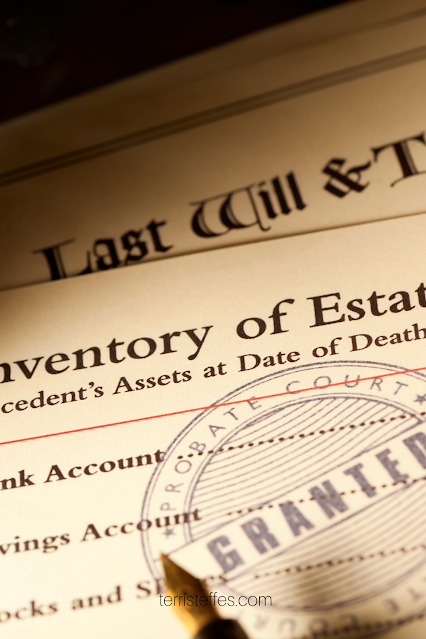Probate. The word alone can send a chill down the spine of any would-be executor or beneficiary—especially if you’re scrolling through results for probate lawyers near Melbourne. But fear not: probate isn’t some ancient ritual or courtroom drama. It’s simply the legal process that confirms a will is valid and gives the green light for estate assets to be distributed.
What Exactly is Probate & Why It Can Make or Break an Australian Estate
Still, it’s one of those things that can either smooth the road ahead… or grind the whole estate to a screeching halt. Let’s break it down—minus the legalese and plus a little humour (because someone has to laugh when the paperwork hits the fan).
Key Takeaways
Probate is a court-issued document that confirms the validity of a will and the executor’s authority to act.
Each Australian state has different rules and fees, so location matters (yes, even in death).
Delays, legal costs, and frozen assets can make probate a nightmare if not handled properly.
You might be able to avoid probate entirely for small estates or jointly owned assets.
Get good legal advice early—it could save months of drama and thousands in fees.
What is Probate, Really?
Let’s get this straight: probate isn’t some kind of punishment for having a will. It’s a formal process where the Supreme Court (in your state or territory) confirms the will is legally valid and that the named executor can handle the estate.
If there’s no will, a similar process called “letters of administration” is required—same idea, just minus the clear instructions.
In most cases, banks, super funds, and land registries won’t hand over anything until probate is granted. So yes, if Grandma left you a beachfront shack, you’ll need that piece of paper before you can move in, rent it out, or sell it.
Why Probate Can Wreak Havoc on an Estate
Here’s the kicker: probate isn’t quick. And it’s rarely painless.
If the will is unclear, contested, or missing altogether, the whole process can become a drawn-out saga. Throw in legal fees, court filing costs (which vary by state), and the fact that beneficiaries can’t touch a cent until everything’s sorted, and you’ve got a recipe for tension at family BBQs.
Not to mention:
"Being the executor is like being the CEO of a company… except no one applied, everyone’s grieving, and half your shareholders are angry cousins."
The Aussie Probate Process, Step by Step
Let’s demystify it. Here’s what typically happens once someone dies and probate is required:
Obtain the official death certificate.
Locate the original will (no pressure).
Publish a notice of intention to apply for probate (usually online via Supreme Court websites).
Wait 14–28 days, depending on state.
File the probate application with the Supreme Court.
If all goes well, the court grants probate, and the executor can start paying debts and distributing assets.
Pro tip: In Victoria, expect the process to take anywhere from 6 to 12 weeks, depending on complexity.
Common Probate Pitfalls (And How to Dodge Them)
Here’s a listicle you’ll want to bookmark if you’re about to deal with an estate:
Top 5 Probate Pitfalls in Australia
Losing the original will – photocopies won’t cut it. Courts don’t like guesswork.
Not advertising properly – each state has strict rules about public notices.
Skipping legal advice – it’s like trying to DIY your own dental surgery.
Not accounting for taxes or debts – the ATO still wants their slice.
Disputes among beneficiaries – where there's a will, there’s a family argument.
Is Probate Always Needed?
Surprisingly, no. Some estates slip under the probate radar.
If the deceased had minimal assets, or if most property was owned jointly (like a home shared with a spouse), the banks and land registries may let things pass without probate.
But don’t assume—check with each institution involved. One bank might release $15k without probate; another won’t budge for $5k. Superannuation is also its own beast, often paid at the fund’s discretion.
How to Stop Probate from Becoming a Problem
You don’t need to be a psychic to prepare for probate. Here are a few moves that can keep things clean and simple:
Keep your will updated and easy to locate (sock drawer ≠ secure storage).
Name a capable executor—preferably someone good at paperwork and people.
Use binding nominations on your superannuation so it doesn’t get tied up in the estate.
Consider joint ownership of assets where appropriate.
Gift or create a trust during your lifetime to reduce what goes through the estate.
Trust us, your future executor will thank you.
Conclusion
Whether you’re planning your estate or staring down the role of executor, understanding how probate works can save a lot of grief—literally and legally. The process can be complex, emotional, and full of legal booby traps, especially if assets are significant or there’s family tension in the mix.
If you’re searching for probate lawyers near Melbourne and don’t want to navigate this solo, the team at Tonkin Law has the local experience and clear advice to guide you every step of the way.
Death is inevitable. But probate disasters? Totally avoidable.



Post a Comment